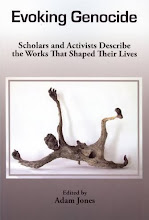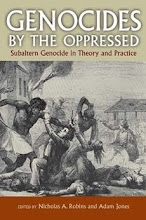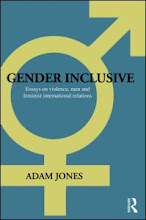 |
| "Kurds in northern Diyala Province have faced a campaign of terror. In Jalawla, a Kurdish official's home was bombed." (Ayman Oghanna/The New York Times) |
By Tim Arango
The New York Times, April 21, 2012
"In January, the dismembered body of Wisam Jumai, a Kurdish intelligence officer, was discovered in a field in Sadiyah, a small town in northeastern Iraq. Soon his family and friends, one after another, received text messages offering a choice: leave or be killed. 'Wisam has been killed,' read one message sent to a cousin. 'Wait for your turn. If you want your life, leave Sadiyah.' After Mr. Jumai's killing, nearly three dozen Kurdish families fled their homes and moved here, according to local officials, to the sanctuary of a city that is claimed by the government in Baghdad but patrolled by Kurdish forces. Other Kurds from the area have come here after being pushed out over property disputes that can be traced to Saddam Hussein's policy in the 1970s of expelling Kurds and resettling Arabs. Whether by terrorism or judicial order, the continuing displacement of Iraq's Kurdish minority lays bare the unfinished business of reconciliation in the wake of the American military's withdrawal, and it is a symptom of the rapidly deteriorating relationship between the semiautonomous Kurdish government based in Erbil and the central government in Baghdad. The schism, which is most immediately over sharing oil wealth but is more deeply about historical grievances and Kurdish aspirations for independence, raises serious questions about the future of a unified Iraq. The crisis, American officials say, is far more grave than the political tensions between the Shiite-dominated government of Prime Minister Nuri Kamal al-Maliki and the country's Sunni Arab minority set off by an arrest warrant on terrorism charges issued in December for Tariq al-Hashimi, the Sunni vice president. The Kurds, unlike the Sunnis, have their own security forces, oil reserves, ports of entry and even their own de facto foreign policy, with envoys operating in other countries. This could eventually lead them to seek more independence from Baghdad. 'Fearing a resurgence of a strong central state, Kurdish leaders want to leave Iraq, and they appear to believe their moment to do so may soon arrive,' wrote Joost Hiltermann, an analyst at the International Crisis Group, in a recent report. [...]"














If you're interested in more info. about the Kurdish Genocide, we at (www.ikjnews.com) can provide you documents, photos, info. etc.
ReplyDelete